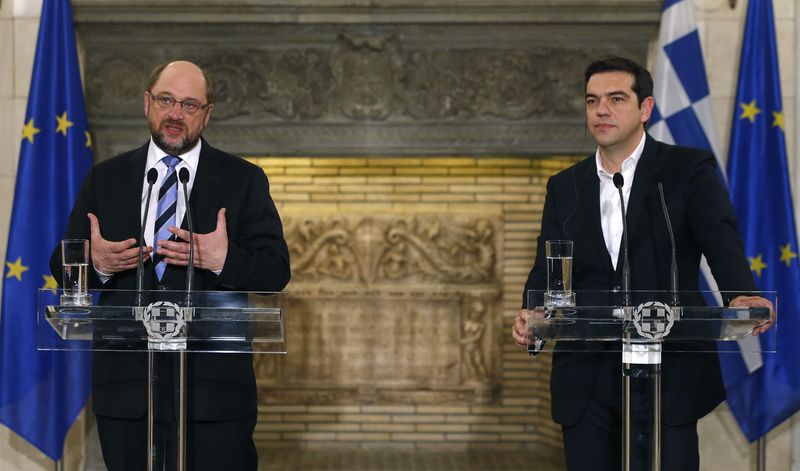ATHENS (Reuters) - Greece should not undermine EU policy on Russia at a time when it is seeking support from its partners over its economic problems, European parliament President Martin Schulz told Greek newspapers on Friday.
Within hours of taking office last week, Greece's new government complained it was not consulted before the European Union moved to threaten tighter sanctions on Russia.
At a meeting in Brussels on Thursday, the new Greek foreign minister tried to dispel suggestions that Athens would side with Russia in the Ukraine crisis and signed up to extending the EU sanctions. But European allies remain wary.
"I was surprised by the statements that were made and the fact that the Greek government looked ready to abandon the common EU line on Russia," Schulz, who met Greece's Prime Minister Alexis Tsipras on Thursday, told Kathimerini newspaper.
"It is difficult on the one hand to expect a revised common approach to one's country, and on the other to be differentiating from the others, particularly as the first move after taking office," he said.
Schulz also expressed concern over the make-up of Greece's coalition government, saying it would limit its room for manoeuvre in crucial talks with the euro zone.
Tsipras formed a coalition with the right-wing, nationalist Independent Greeks party, which is also opposed to the bailout terms Athens agreed with its lenders.
"I find this coalition very strange. A leftist party like Syriza ... with a super-nationalist party at the other end. I think the common denominator is the scepticism against the European union," Schulz told newspaper Ta Nea.
Tsipras has said he is determined to end budget austerity demanded by the European Union and International Monetary Fund in return for a 240 billion-euro bailout.
